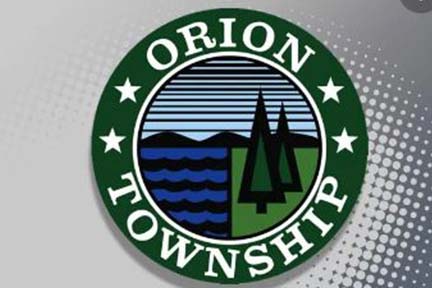
by orionontv | Dec 28, 2022 | Regional News

Gov. Whitmer Announces Executive Office and Budget Office Staff Changes
LANSING, Mich. – Today, Governor Gretchen Whitmer announced changes in her executive office and the state budget office. In the executive office, the governor announced former Chief Deputy Attorney General Christina Grossi as Chief Legal Counsel, former state Senator Curtis Hertel Jr. as Director of Legislative Affairs, Korey Hall as Detroit Regional Director, Kristi James as Deputy Director of Legislative Affairs for the Senate, Ryan Bardoni as Deputy Director of Legislative Affairs for the House, and Jada Weatherspoon as the House Associate Liaison.
“Our new team members bring years of experience to their roles,” said Governor Whitmer. “I look forward to working with them to get things done that make a real difference in people’s lives. Let’s take advantage of our economic momentum to lower costs for working families and move Michigan forward.”
Christina Grossi, Chief Legal Counsel
Grossi served in the Michigan Department of Attorney General for 12 years, most recently as Chief Deputy Attorney General. During her tenure with the Department, Grossi worked on several high-profile cases and investigations, including securing the injunction against Michigan’s 1931 abortion law. She is an adjunct professor at Michigan State University. Grossi is a Michigan State University graduate and received her JD at Western Michigan University’s Cooley Law School.
Curtis Hertel Jr., Director of Legislative Affairs
Hertel served in the Michigan Senate from 2015 through 2022. He brings years of experience and strong relationships on both sides of the aisle to the executive office. He will work with members, several of whom he has served with, to deliver on the kitchen-table issues. Hertel is a graduate of James Madison College at Michigan State University. He and his wife are proud parents of four.
Kristi James, Deputy Director of Legislative Affairs, Senate Liaison
James, previously the Deputy Legislative Director for the House, will now work with the Senate. She brings years of legislative experience and will continue building on her work over the last year on the governor’s team. James is a graduate of James Madison College at Michigan State University. She volunteers and serves on several community boards in Lansing.
Ryan Bardoni, Deputy Director of Legislative Affairs, House Liaison
Bardoni served as Deputy Chief of Staff to Democratic Minority Leader Donna Lasinski. Previously, he was with the Michigan Nurses Association and held several positions in the legislature over the last decade. Bardoni is a University of Michigan graduate.
Jada Weatherspoon, House Associate Liaison
Weatherspoon served as a staffer in the Michigan House, assisting constituents, handling a range of issues, and working with local stakeholders. She is a graduate of Wayne State University.
Korey Hall, Detroit Regional Director
Hall, previously the Director of Community Affairs, will serve as the governor’s new Detroit Regional Director. Previously, he was Political Director for U.S. Senator Gary Peters, Regional Manager for Southeast Michigan in the office of U.S. Senator Debbie Stabenow, and Director of Public Policy and Outreach for the Detroit Branch NAACP. Hall graduated from Fisk University and holds a Master of Public Administration from Baruch College.
Additionally, State Budget Director Chris Harkins is excited to welcome new members to the State Budget Office that are critical to successfully enacting the state’s budget. Kyle Guerrant will serve as Deputy Budget Director and Libby McGaughey will be the Director of External and Legislative Affairs.
Kyle Guerrant, Deputy Budget Director
Guerrant has been with the Michigan Department of Education for 17 years, most recently as Deputy Superintendent of Finance and Operations. He is a graduate of Long Island University (LIU) Post and earned a Master of Social Work from the University of Michigan.
Libby McGaughey, Director of External and Legislative Affairs
McGaughey served as Chief of Staff to Democratic Leader Donna Lasinski. Previously, she was Executive Vice President at Planned Parenthood Advocates of Michigan and held several other policy roles. McGaughey is a University of Michigan graduate and earned a Master of Public Administration from Western Michigan University.
|

by orionontv | Dec 28, 2022 | Local News
CHARTER TOWNSHIP OF ORION
OFFICE OF THE SUPERVISOR
CHRIS BARNETT
FOR IMMEDIATE RELEASE CONTACT: Chris Barnett
248-391-0304 ext. 1001
cbarnett@oriontownship.org
ORION TOWNSHIP AWARDED $7 MILLION IN COMMUNITY PROJECT
FUNDING FOR GIDDINGS/SILVERBELL/BROWN ROAD REHABILITATION
Orion Township, MI (December 28, 2022) – Orion Township has received $7 million in Fiscal Year
2023 U.S. House Appropriations Committee Community Project Funding to go towards the
Giddings/Silverbell/Brown Road rehabilitation project.
In April 2022, Orion Township submitted a $7 million funding request to Congresswoman Elissa
Slotkin’s Office as part of the FY 2023 Community Project Funding program. Of the over 90
applications submitted, the Giddings/Silverbell/Brown Road project was one of 15 selected by
Congresswoman Slotkin to be recommended to the House Appropriations Committee for final
funding consideration. The U.S. House Appropriations Committee funded the full $7 million
request in the Fiscal Year 2023 Federal budget.
“We have been partnering with the Road Commission and Auburn Hills for several years now
seeking the necessary funding to fix the roads along this significant corridor” said Supervisor
Chris Barnett. “With the $7 million awarded through the Community Project Funding program,
we now have over $12 million in funding dedicated for this project, which RCOC has slated for
construction in 2024.”
The Giddings/Siverlbell/Brown Road project is the reconstruction and rehabilitation of the 2.6
miles of the Giddings/Silverbell/Brown Road corridor surrounding the GM Orion Assembly Plant.
The roads along this corridor are well past their service life and will be completely removed
and replaced with pavement and sub-base, along with most drainage sewer structures (curb,
gutter, drains, catch basins). The five-lane road will be designed to withstand the weight of
3,000 commercial trucks and over 18,000 vehicles per day. In addition, signals and pedestrian
crosswalks will be updated and 18,275 feet of new safety path will be constructed.
In addition to the Orion Assembly Plant, this corridor supports other large employers in the
area, including FedEx, Eagle Valley Landfill, Gardner White Furniture, JR Automation (Esys),
Natrabis, Powers Distributing, Roush Industries, and Asea Brown Boveri Ltd (ABB). This project will
improve road surface conditions, re-establish connectivity, deliver reliability, and promote
regional economic growth.
CHARTER TOWNSHIP OF ORION
OFFICE OF THE SUPERVISOR
CHRIS BARNETT
“Our office received over 90 applications for Community Project Funding, and it is a testament
to Supervisor Barnett and his team’s work that their project was selected.” Said
Congresswoman Slotkin. “The community and our District will directly benefit from thier efforts.”
“We truly appreciate Congresswoman Slotkin’s support for this project.” Said Supervisor
Barnett. “She has been a true champion for Orion Township as our Congressional
Representative in D.C., and I have valued our growing partnership over the past two years. I
look forward to seeing her continued success as the Representative for Michigan’s 8th district
and the communities she serves.”
About the Community Project Funding Program
To meet the urgent needs of communities across the United States, the House Appropriations
Committee invited Members of Congress to request funding for projects in their communities.
Members of Congress were invited to submit proposals for federal funding for 15 specific
projects in their congressional districts. The complete list of Congresswoman’s Slotkin’s
Community Project Funding proposals submitted to the Appropriations Committee for fiscal
year 2023 may be found on her official website.

by orionontv | Dec 28, 2022 | Regional News
| FOR IMMEDIATE RELEASE:
December 28, 2022 |
|
Attorney General Helps Save DTE Customers Nearly $13 Million
|
|
LANSING — The Michigan Public Service Commission (MPSC) denied in full a request from DTE Electric Company to implement an expensive prepay program and to rescind certain customer protections. In its order, the MPSC cited extensively the Department of Attorney General’s argument and noted that the Department’s involvement in the case was key to its determination, Attorney General Dana Nessel announced today.
In case No. U-21087 before the MPSC, DTE Electric sought permission to start a prepay program, through which ratepayers could pay for electricity usage before actually consuming that energy, as opposed to the traditional “postpay” model. To implement the program, DTE also asked to suspend certain billing rules, which serve as customer protections.
After intervening in the case, the Department of Attorney General closely examined DTE’s proposal and how it would affect customers. Along with other consumer advocates, the department pointed out the many flaws with the program, including:
- DTE previously conducted a prepay pilot program that was unpopular and saw almost all participants leave.
- DTE wanted to spread the program costs out across its entire customer base, while only those who enrolled in the program would actually benefit.
- Within the program, DTE would have had the ability to more quickly disconnect customers for late payments, without the built-in safeguards guaranteed by the billing rules.
- The lack of detail on any benefits customers would receive in return for paying $12.6 million to get the program started.
- Unspecified costs to keep the program running.
- The fact that DTE discussed the costs of the case in a separate docket, making a proper cost-benefit analysis impossible.
“While programs such as DTE’s prepay proposal may appear harmless on their face, it is important to understand how the program is structured, what protections ratepayers are being asked to forfeit, how much the program will cost, and who will ultimately pay for the program,” said Nessel. “My department is vigilant in examining the cases presented to the MPSC to ensure the interests of ratepayers are fully and adequately considered. The structure and costs associated with this program were a bad deal for consumers, especially lower-income customers who might have found themselves forced into the program. I appreciate the MPSC’s attention to the very real risks for customers in this case. This is a big win for ratepayers.”
Since taking office the Attorney General has saved Michigan consumers more than $2 billion by intervening in utility cases before the MPSC.
|
|

by orionontv | Dec 28, 2022 | Regional News

Gov. Whitmer Announces Operation Safe Neighborhoods Reaches New Milestone with More than 250 Illegal Guns Off the Street
LANSING, Mich. – Today, Governor Gretchen Whitmer provided an update on the number of illegal guns taken off the streets as a part of the Operation Safe Neighborhoods program. Since the operation began, law enforcement officials have conducted 2,020 check-ins with felony offenders, leading to 254 illegal guns taken off the street before it could be used to commit a crime. During sweeps, officers have also recovered countless illegal drugs and ammunition.
“Every Michigander deserves to be safe in their neighborhood,” said Governor Whitmer. “Today, I am proud to announce that Operation Safe Neighborhoods has taken 254 illegal guns off the street before it could be used to commit a future crime. Over the last four years, we have invested over $1 billion in public safety, and we will continue to make record investments, so Michiganders are safe at home, work or school, or running an errand.”
Operation Safe Neighborhoods is a statewide crack down on crime aimed at reducing gun violence by getting illegal guns off the street and out of the hands of people who cannot legally be in possession of a gun due to prior criminal history.
“We are committed to investing in public safety and safe communities for every Michigander,” said Lt. Governor Garlin Gilchrist II. “I am encouraged to see the progress happening around the state as we partner with local law enforcement to prevent gun violence and crime by getting guns off our streets. Governor Whitmer and I will continue working with every tool available to us to create communities where every person feels safe, knowing that the state of Michigan is invested in their future.”
Nearly one in three reported violent crimes in Michigan involve a firearm, and in the first half of 2022, over 450 Michiganders have lost their lives due to gun violence. The new initiative builds on Governor Whitmer’s MI Safe Communities program that she launched last summer to invest in local police, get illegal guns off the street, and fund expanded opportunities in jobs, education, and the justice system.
About Operation Safe Neighborhoods
Recently, MDOC parole and probation agents teamed with local law enforcement across the state and have been conducting enhanced compliance checks on probationers and parolees who are legally prohibited from possessing a gun.
There are roughly 32,000 probationers and 8,500 parolees in the state, of which 20 percent have been convicted previously of a gun crime. These individuals are supervised by more than 1,000 MDOC parole and probation agents. The plan the department devised and implemented is aimed at the strategic targeting of high-risk individuals who have weapons possession in their criminal history that could be used to commit further crime.
Governor Whitmer’s $1 Billion Record Breaking Public Safety Investments
As a former prosecutor, public safety is a core issue for Governor Whitmer. She has worked closely with local leaders, law enforcement officers, and community organizations to ensure people feel safe in their neighborhoods. Since taking office, she has signed four balanced, bipartisan budgets, each making record investments to help communities fund local law enforcement departments and hire more first responders.
In the balanced, bipartisan budget Governor Whitmer signed in July, she made the largest investment in public safety since taking office: $670,315,000. This investment brings the total funding for first responders and public safety initiatives under the Whitmer-Gilchrist administration to $1,056,267,100.
Last summer, the governor proposed MI Safe Communities, a plan to invest $75 million in federal funding from the American Rescue Plan to reduce crime and keep families safe by getting illegal firearms of the street, tackle the criminal court backlog, expand resources available to law enforcement, and address the root causes of crime by investing in jobs programs, counseling, and education.
Governor Whitmer’s Criminal Justice Investments
Governor Whitmer has also worked across the aisle to enact historic criminal justice reform. She signed bipartisan “Clean Slate” legislation to help hundreds of thousands of Michiganders emerge from the criminal justice system with enhanced opportunities for jobs and housing, empowering them to pursue their full potential. She also launched task forces to address pretrial incarceration and juvenile justice and pursued reforms to improve relationships between law enforcement and the people they serve.
In July, Governor Whitmer signed her fourth balanced, bipartisan budget that included funding for Jobs Court, a program that offers non-violent, low-level offenders gainful employment with local partnering small businesses.
|

by orionontv | Dec 27, 2022 | Regional News
 |
FOR IMMEDIATE RELEASE: Media Contact:
December 23, 2022 Lt. Jeff Yonker, MSP/EMHSD
517-719-9767
State Emergency Operations Center Activated
LANSING, MICH. Governor Gretchen Whitmer activated the State Emergency Operations Center (SEOC) at 1 p.m. today to respond to the hazardous weather conditions, resulting from the statewide winter storm. Prior to the activation, the State of Michigan had been coordinating with local communities to ensure full staffing of first responders, pre-deployment of utility repair crews, readiness for road crews and availability of warming shelters. The SEOC activation is the next step to make additional state resources available to support local communities, as necessary. As of 4 p.m., there have been no requests from local governments for state resources.
“Our top priority right now is keeping Michiganders safe. I am grateful to our first responders, road maintenance crews, utility crews and volunteers at warming centers who are working hard to keep people safe and warm,” said Gov. Gretchen Whitmer. “By taking this next step to activate the State Emergency Operations Center, we are making sure that our response is coordinated and that resources are available to impacted communities. We will continue to work with local officials and are prepared to offer the full weight of state resources to respond to the storm.”
The blizzard conditions, power outages and dangerous driving are impacting multiple communities throughout the state. Throughout the activation, conditions and needs will be continually assessed and appropriate action will be taken as warranted to protect public health and safety.
Due to hazardous road conditions, which can change quickly, Michiganders are encouraged to avoid non-essential travel throughout the remainder of the day, if possible.
The SEOC is the emergency operations center for the State of Michigan. It is located in Lansing and overseen by the Michigan State Police Emergency Management and Homeland Security Division (MSP/EMHSD). The SEOC coordinates response and recovery efforts of state agencies and assists local governments. The SEOC is staffed by state agency personnel for decision-making and information coordination for disasters and emergencies. |









